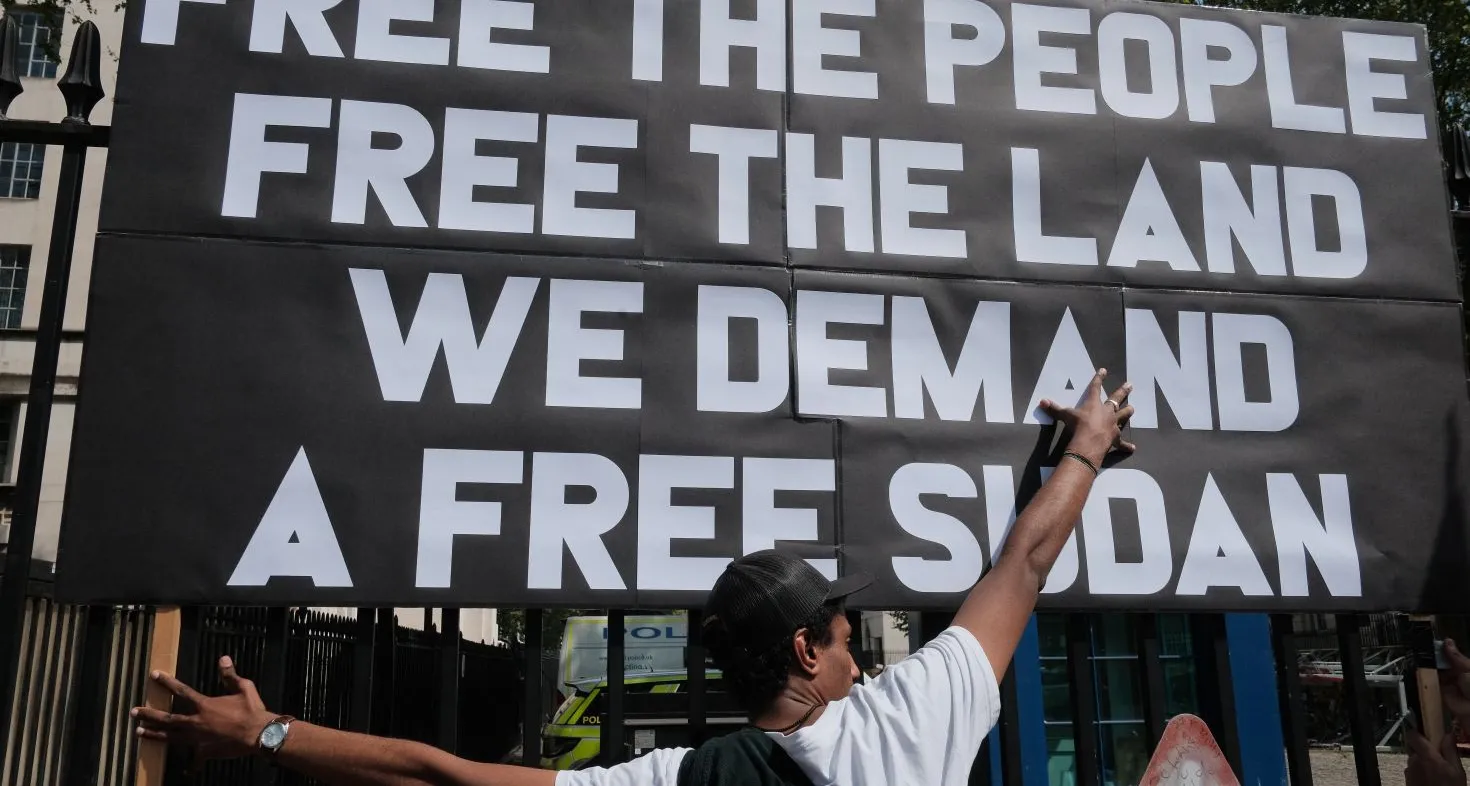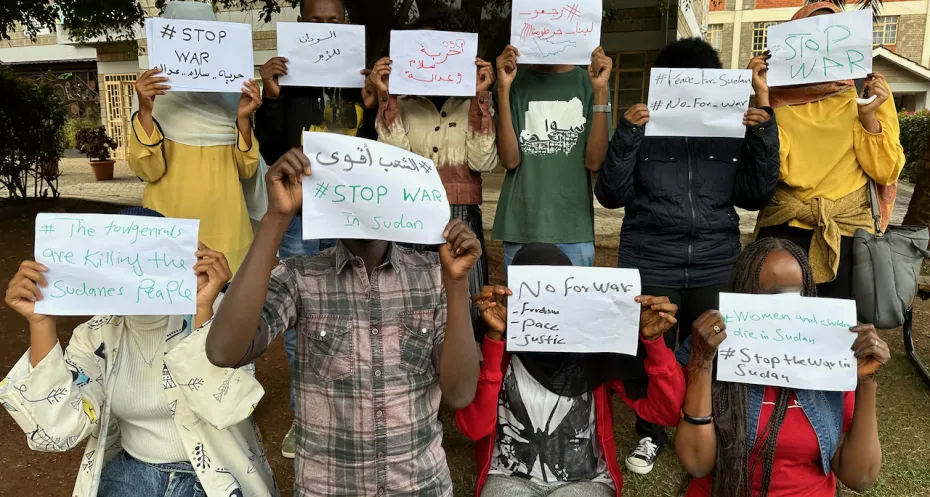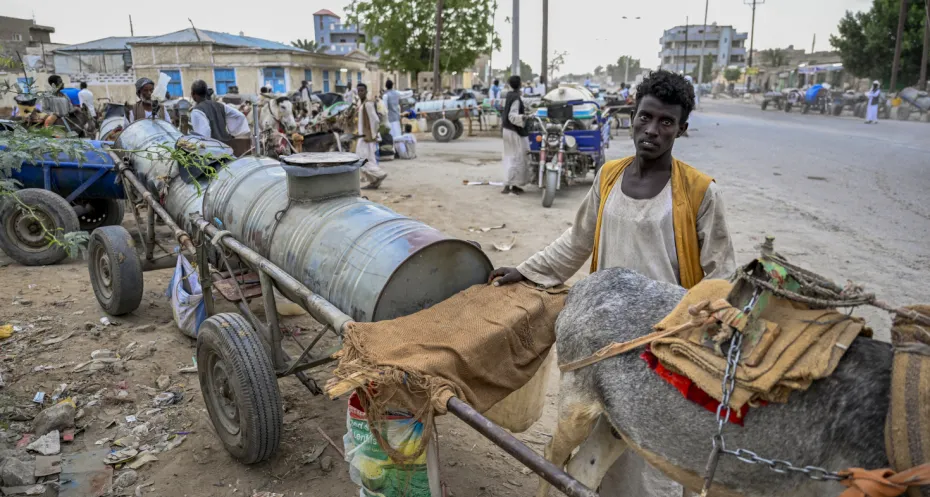
Support needed for Sudanese media to keep All Eyes On Sudan
Over a year into the eruption of the conflict in Sudan, the impact is incomprehensible. With over 11 million internally displaced and 25 million in need of humanitarian aid, it is the worst humanitarian crisis in the world. Yet the events in Sudan are gravely under reported.
This has multiple reasons, but a significant one is the harsh circumstances for journalists within the country. Approximately more than 300 independent journalists left Sudan for fear of repression and retaliation since the outbreak of violence. 1000 journalists lost their job. However, there are still many brave journalists who continue to report from within communities and cities under siege on both sides of the conflict.
Leon Willems, Senior advisor at Free Press Unlimited and Sudan expert, spoke about the pressing situation of Sudan and Sudanese media on 26 June during the event “Political cafe: All eyes on Sudan” in Utrecht, the Netherlands.
Willems: “Sudan falls into media darkness. Most media houses are now in exile with a complete loss of funding for their activities. Communication lines are destroyed, specifically the communications infrastructure in Khartoum like telecommunications and radio transmission towers. 90% of Darfur has been blocked from the internet for over eight consecutive months.”
Violence against journalists
Our partner The Journalism Syndicate reports 393 cases of direct violence against media and journalists inside Sudan between April 2023 and April 2024. Since the beginning of this year we have also seen targeted killings of journalists. Like Halima Idriss, who was overrun by a Rapid Support Forces vehicle while reporting. Ahmed Arabi from Blue Nile TV was apprehended in his house by uniformed men, after which he was shot dead and handed back to his family. Posters were put up in streets in Karri Neighborhood of Omdurman threatening to kill two journalists.
28 journalists got wounded through gun-shots, 39 journalists were arrested, of which three are still detained.
28 journalists got wounded through gun-shots, 39 journalists were arrested, of which three are still detained. A woman journalist was chased down to her home in Eddain threatening her family with sexual assault for publishing video’s about Darfur.
Media chaos
Kamal El Sadig, editor-in-chief of exiled news platform Radio Dabanga, says: “The effects of the war are not limited to restricting freedom of the press. Both parties to the conflict are waging a propaganda war that has created media chaos. The respective warring parties and their agents have created dozens of websites and fake accounts on social media platforms to control the flow of information and spread false and misleading news, hate speech, and racism.”
The millions of displaced Sudanese people depend on information to know where it is safe or where there is aid being distributed, but also depend on internet-based banking to receive money for their daily expenses.
This internet blockage is not just a menace for the media distribution but also a grave problem for the people of Sudan of whom according to the most recent OCHA figures (from 24 June) over 11 million are displaced since the outbreak of violence in April 2023. They depend on information to know where it is safe or where there is aid being distributed, but also depend on internet-based banking to receive money for their daily expenses.
All eyes on Sudan: international community
Willems: “The international community is paralysed. They feel no urgency and claim there is no outlook for improvement while pointing at others to act.”
He continues: “It seems that politically the west has given up on values, principles, law, genocide prevention. When I spoke to Western diplomats, I was asked if we could not start a campaign ourselves. Many government officials and elected politicians cannot be made to move on Sudan. It is on us to raise public awareness to make politicians start to care more. It is the world upside down. But that is where we are.“
More funding and humanitarian aid is needed, as well as sanctions towards countries that support the war, and the complicity of businesses needs to be investigated.
A ray of hope
But we can make a difference. Free Press Unlimited has supported 52 journalists with emergency aid like relocation. And there are initiatives that bring hope, like the Sudan Media Forum that brings together 29 independent media organizations to join forces against disinformation.
Willems stresses: “The strength of the people of Sudan is to work together at the time of a heavy crisis. Citizens in Sudan care about each other, if permitted and enabled. This why I love Sudan. There is deep solidarity that society and communities can build on.”
Raising your voice works: “Donors are beginning to respond to the situation slowly. But more is needed. It is time that the international community realizes the importance of acting. Because not taking care of Sudan will come back to haunt us.”



